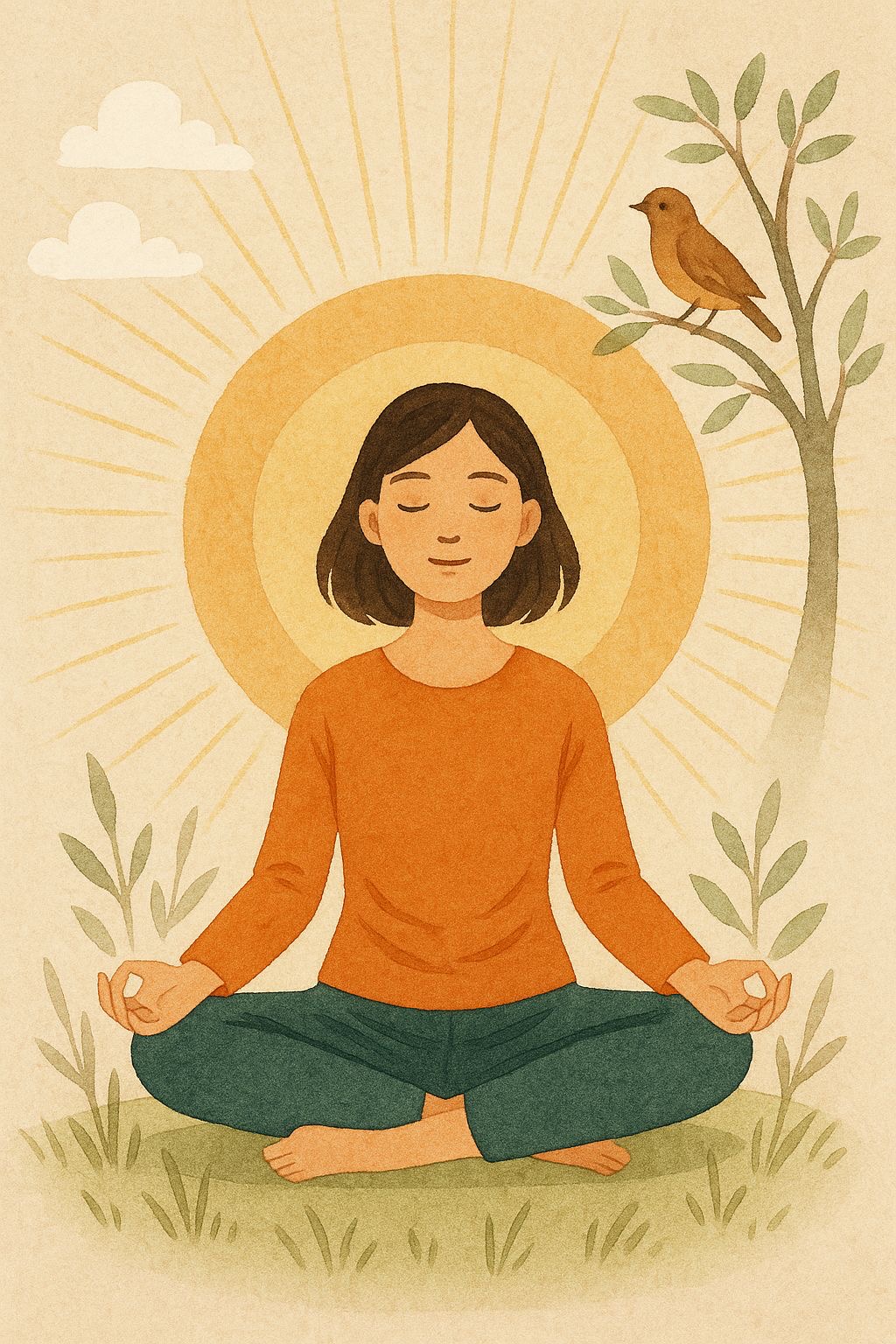In today’s fast-paced, achievement-driven world, we often equate success with comfort, pleasure, and material gain. We study hard to get a good job, work long hours to earn money, and chase goals that promise happiness. This pursuit, no doubt, requires effort physical, mental, and emotional. And quite often, it works. Effort leads to success, and success brings a sense of comfort. But does comfort truly equal peace?
Let’s take a deeper look at this idea:
Efforts bring comfort, but true peacepeace comes through spiritual practice.
The Nature of Effort and Comfort
From childhood, we are taught the value of hard work. Study hard, get good grades. Work hard, earn money. Train hard, win competitions. The link between effort and outcome is undeniable. These results usually bring some form of material comfort a better home, a vacation, financial security, or social status. These are all desirable and can enhance the quality of life.
But comfort, while pleasant, is temporary. A cozy bed, a new car, or a luxury vacation may ease your body or entertain your mind, but none of these can soothe the restlessness that often lingers in the heart. When the novelty wears off, or challenges arise again, the comfort fades. That’s when many people realize: comfort is not the same as peace.
The Restlessness Within
Have you ever achieved something you worked hard for, only to feel empty after a while? Or felt anxious even when life seemed to be going well on the outside? These experiences are common. Despite reaching milestones or gaining material success, many people still feel something is missing.
This inner restlessness is a sign that we may be seeking fulfillment in the wrong places. Comfort can take care of the body and ego, but it cannot fulfill the soul.
What Is True Peace?
Peace is not just the absence of stress, but the presence of inner stillness. It’s a calm that remains steady even when life gets noisy. It doesn’t depend on external circumstances, because it comes from within.
Unlike pleasure or comfort, which are usually fleeting and tied to something outside of us, peace is sustainable. It nourishes our mind, body, and spirit. True peace gives clarity, patience, empathy, and a deep sense of belonging—qualities that remain even when challenges arise.
But how do we attain this peace?
The Role of Spiritual Practice
This is where sādhanā, or spiritual practice, enters the picture.
Sādhanā doesn’t necessarily mean renouncing the world, sitting in a cave, or chanting mantras all day (though it can include those). It simply means a consistent practice that connects us to our higher self to something beyond the physical and mental plane.
Spiritual practice helps us pause the noise of daily life and listen to the silence within. Whether it’s through meditation, prayer, journaling, yoga, mindfulness, or acts of selfless service, spiritual practice brings us into the present moment and grounds us in awareness.
Comfort vs. Peace: A Simple Analogy
Imagine you’re sitting in a comfortable chair in an air-conditioned room. Your body feels relaxed. But your mind is racing you’re thinking about deadlines, worrying about the future, or replaying a recent argument. The environment is comfortable, but are you truly at peace?
Now imagine sitting in a simple space maybe even on the floor but your mind is still. You feel connected, calm, and aware. The environment may not be luxurious, but your inner world is in harmony. That’s peace.
Spiritual practice helps us shift from the first scenario to the second not by removing all life’s problems, but by changing how we relate to them.
Why Effort Is Still Important
This isn’t to say that effort is bad or unnecessary. On the contrary, effort is essential. It builds character, discipline, and resilience. The key is understanding where to direct our effort.
If all our energy goes only toward external achievements, we might end up rich in possessions but poor in peace. But if we also invest effort into our inner life our thoughts, values, and connection with ourselves then we build a foundation of peace that nothing outside can shake.
In fact, spiritual practice also requires effort, just of a different kind. It’s the effort to be mindful when your mind wants to wander. The effort to be kind when anger rises. The effort to sit in stillness when distraction calls. It’s a subtle, but profound kind of effort one that transforms us from within.
Building a Simple Spiritual Practice
You don’t need to turn your life upside down to begin a spiritual journey. Here are a few simple ways to start:
1. Meditate Daily
Just 5–10 minutes of sitting quietly, observing your breath or repeating a mantra, can create a huge shift over time.
2. Practice Gratitude
Every evening, write down three things you’re grateful for. This simple habit grounds you in the present and shifts your focus from lack to abundance.
3. Mindful Living
Whether you’re eating, walking, or washing dishes, do it with full awareness. Bring your attention to the now.
4. Acts of Service
Do something kind without expecting anything in return. It could be helping a neighbor, listening to a friend, or donating time or resources to a cause you care about.
5. Limit Mental Clutter
Reduce your screen time, especially before bed. Spend more time in nature. Read spiritual or philosophical texts that inspire you.
The Inner and Outer Journey
Ideally, life is about balancing both: using effort to create comfort and stability, and using spiritual practice to cultivate peace. You don’t have to choose one over the other. You can work hard and achieve goals while also nurturing your inner world.
In fact, when peace becomes your foundation, even your efforts become more focused and joyful. You start working from a place of fulfillment, rather than constantly chasing it.
Final Thoughts
In the grand journey of life, comfort is like a rest stop important and pleasant, but not the final destination. Peace, however, is the true home we all seek.
So continue to make efforts, chase dreams, and build a life you love. But don’t forget to pause, reflect, and reconnect with your spirit. Because while effort brings comfort, it is only through spiritual practice that we find lasting peace.

